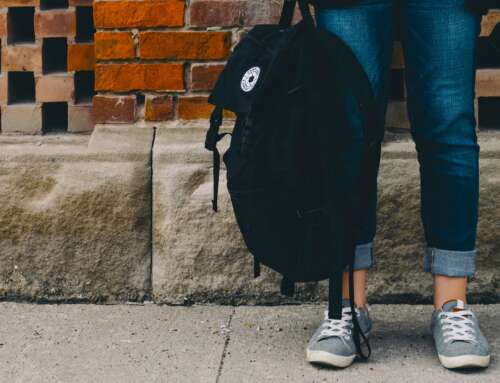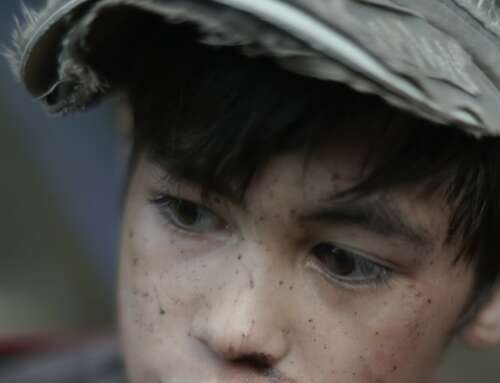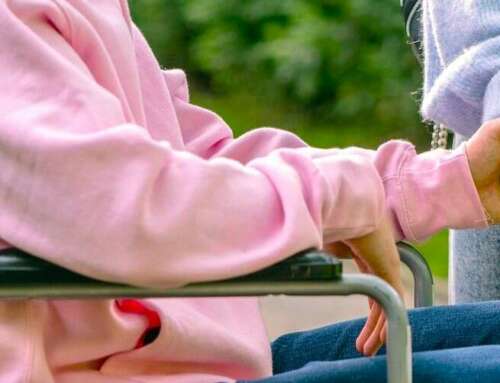Andrew Fuller, Child & Adolescent Clinical Psychologist, My Learning Strengths
How not to get PTSD in trying times
Everyone seems to be either shrinking away in fear of one another or heaving a sigh of relief and pretending everything is hunky dory. I’m not sure we are clear anymore about where the news stories end and our anxiety attacks begin. Either way, the barrage of tough news during these times is showing in the wear and tear on people.
Conditions under which you get PTSD
Something nasty happens that overwhelms you.
You can’t predict it.
You can’t control it.
You can’t avoid it.
You can’t turn to anyone else to support or protect you.
You feel it’s going to get worse rather than better = PTSD.
Trauma is created when an event overwhelms us usually leaving three big feelings in its wake: powerlessness, hopelessness & helplessness.
Apart from a very select few who have lived totally charmed and untroubled lives, the rest of us all have some trauma in our lives. However, this doesn’t mean we have post- traumatic stress disorder (PTSD). The most common response to difficult circumstances is resilience and that is the response I want for you. Let’s talk about how to create it.
How you handle these feelings determines how well you cope. Let’s consider how not to be more effected by these times any more than you need to be.
Preventing Powerlessness
This is about moving from stressed to strong.
Avoidance is not serving anyone well right now. Part of your power resides in taking stock of
what you can control and letting go of what you can’t control. Acknowledge that there are things that no one can be certain about (and then remind yourself that, isn’t that really always the case?) Don’t try to be unrealistically optimistic or find appreciation and gratitude when you don’t feel that way. Your power is in looking the situation fair and square in the eye. Accept what is.
Process your body
Traumatic feelings live more in our bodies than they do in our minds.
Move at the speed of need. This will vary. Some days you will be full of pep and energy, other days you may resemble a sloth on long -service leave. Live at your own rate.
Complete a body audit. Where in your body do you feel strong? Where do you feel vulnerable? Where are you hurting? Listen to your body.
We hang on to trauma physically. For example, if you have ever had a time in your life when you rapidly gained weight, it is worth considering if it was also a time when you had some traumatic feelings.
While therapy with a skilled mental health professional undoubtedly helps, there is also a lot you can do to process the issues. These include dancing, singing, swimming, surfing, skating, stretching, beating a drum, going for a walk, tai chi and yoga.
Preventing Hopelessness
Turn down the volume
Dilute your stressors. Repeatedly exposing yourself to negative news and conversations can be traumatising. Have at least some time each week when you access positive news and discoveries.
Know your enemy but don’t be defined by them
Enemies, whether they are difficult times or specific people can teach us a lot. Look to the lessons you can take from this. They may be about taking better care of yourself but they may also be lessons you learn about yourself.
As Albert Camus once observed, “In the midst of winter, I found, within me, an invincible summer”. Be courageous enough to be yourself.
Plan to increase your immunity and your well-being
In times like these, it is easy to see how people can lessen their well-being. Will you come out of these times as a chunk, hunk, spunk or drunk? Be counter-wise. Sleeping well, eating well, laughing well, moving well and linking well with others goes a long way to keep your well-being humming along.
As much as possible, do something each day that you would normally do if you were feeling hopeful and calm.
You can’t build on what is broken.
Find your own strengths and the strengths of others. Completing the life map in ‘Your Best life at Any Age’ is one way to begin to reflect on these and to use them to create resilience at different stages of life. Completing the analysis at www.mylearningstrengths.com may also be of benefit.
Create Beauty
Beauty is an antidote to hopelessness. It lurks in the small details of life: the smile from a stranger, the wag of a dog’s tail or a sunny morning. Search for these details and also intentionally create more beauty in your world for others to discover. Cherish what you can.
Preventing Helplessness
It has been a hard year but let’s not make it any harder than it needs to be. We tend to tell ourselves one story and make all the facts confirm that position.
Is there a more helpful story we can use?
For example, are we seeing around us examples of great caring and bravery, of times when people co-operate rather than in conflict with each other? Have we beaten enemies and challenges in the past? Can we beat them again? Our history is full of awful times- holocaust, tsunami, pandemics, wars- that people been able to live through and recover from.
If we just obsess on what is dreadful, it can be hard to shake off. Even worse we can become compliant victims rather than actively contributing to a better world. Be a gatherer of possibilities rather than a passive acceptor of dire outcomes.
The fine art of time travelling
It can be useful to think about and plan for, different horizons: 3 months, 6 months, 12 months and may be even five years from now.
Time travel- what would you like to say looking back on this in five year’s time?
Connect, protect and respect.
Kindness and love are our oldest
medicines and our best protective mechanisms. Add to this hope and
connectedness and we have the four most powerful ingredients of healing. When we develop these in families and communities, we enrich lives.
Each ingredient alone may not cure a case of the flu or a virus but together they will help you resist disease, lower stress, lower blood pressure, avoid a heart attack, protect against depression, increase academic results & longevity and help you live a happier life.
Andrew’s books Your Best life at Any Age and Feelings- how to remain sane in a crazy world (out in 2021) may be helpful.
Andrew Fuller is a clinical psychologist and author. He is also chairperson and a frequent speaker at Generation Next seminars, and a contributor of writing about youth resilience, learning and many other topics, including in our handbooks.
Stay in touch with Andrew
On Facebook: @andrewfullerpsychologist
Learning Strengths: www.mylearningstrengths.com
On Linkedin
Andrew’s website: www.andrewfuller.com.au







Leave A Comment